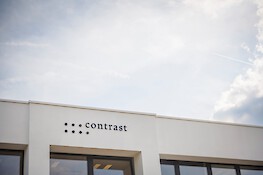In the Picture

Home is (not) where my seat is
March 2018Imagine…
A young Italian pizza chef, who set up his business in the form of a società a responsabilità limitata (S.r.l) with registered office in the heart of Rome, falls in love with a charming Erasmus exchange student from Belgium. With his head in the clouds, he follows her back home to Belgium and decides to open up a pizzeria in Brussels via his Italian company.
As so often in this life, things do not go entirely as planned. Their love cools - and to make things even worse, his pizzeria in Brussels does not have the hoped-for success either. Despite his unremitting efforts, one blue Monday our hapless chef is served a summons from an unpaid supplier . . .
To his astonishment, he reads in the summons that the supplier is asking the court to hold him personally liable under Belgian company law for his company’s unpaid debt.
How could he possibly be held personally liable under Belgian company law? After all, had he not - with the aid of his trusted Italian consigliere - set up a limited liability company under Italian law?
A brief clarification.
Belgium defines the "nationality" of a legal entity and the applicable company law on the basis of the place where the real seat of the legal entity is located. This is the so-called real seat theory.
If a Belgian court finds that the real seat of a foreign company is located in Belgium, because the company has its "principal place of business" in Belgium, then the court applies Belgian company law to this company.
Therefore a foreign company with its principal place of business in Belgium can move its registered office to Belgium and transform itself into one of the company forms that are recognized in the current Companies Code.
If a company does not do so, it is not recognized as such by the Belgian courts. In that case, it loses the protection of the limited liability. This means that persons who act on behalf of the company can be held personally liable. A reality of which our young Italian chef became painfully aware . . .
Foreign entrepreneurs, large and small, are often surprised by the application of the real seat theory in Belgium, since other countries generally apply the principle of the statutory seat, which takes the place of incorporation or the company’s registered office as the point of nexus for determining the applicable company law.
Belgium will soon be doing this as well, because its company law is on the verge of a major transformation. The federal government is currently putting the finishing touches on a new and thoroughly modernized Companies and Associations Code. This modernization will introduce the statutory seat theory, and so Belgium will henceforth be following the example of most other European countries.
The introduction of the statutory seat theory will have as a consequence that companies (thus in the first instance the founders and shareholders) receive a broad degree of freedom to choose the applicable company law themselves, even if the company is only or principally active in Belgium or is directed from Belgium. Surprises such as that of our pizza chef will become a thing of the past, since a company’s registered office is a concrete fact, hardly subject to interpretation.
Concretely:
- Belgium traditionally applies the real seat theory, under which the applicable company law is determined on the basis of a company’s principal place of business.
- If a foreign company has its real seat in Belgium and does not convert into a Belgian company form, it runs the risk of not being recognized as such. This can have far-reaching consequences for the persons who act on behalf of the company.
- The most recent draft of the new Belgian Companies and Associations Code introduces the statutory seat theory. This means that the company’s place of incorporation or its registered office is the point of nexus for the applicable company law, and this regardless of where the real seat of the company is located.
- This evolution will substantially facilitate the mobility of companies to and from Belgium. Moreover, it essentially gives companies the freedom to choose the applicable company law.
Want to know more?
- Opinion of the Central Economic Council on the reform of the company and association law (http://www.ccecrb.fgov.be/txt/nl/doc17-2666.pdf, pp. 9-11 on the introduction of the statutory seat theory).
- For the classical case-law of the European Court of Justice concerning the limits on the real seat theory, see e.g. the judgements in Centros (Case C-212/97, EU:C:1999:126, paragraph 27 et seq.), Uberseering (Case C-208/00, EU:C:2002:632, paragraph 92), and Inspire Art (Case C-167/01, EU:C:2003:512, paragraph 95).
- For the latest developments on the mobility of companies within the EU, see the Polbud judgment of 25 October 2017 (Case C-106/16, EU:C:2017:804, to consult via www.curia.eu. Also check https://corporatefinancelab.org/2017/10/25/polbud-ecj-further-facilitates-shopping-for-company-law/).
- On the free choice of company law and some critical comments on this, see https://corporatefinancelab.org/2017/04/09/vrije-keuze-van-vennootschapsrecht-enkele-kritische-kanttekeningen/ (only available in Dutch).











